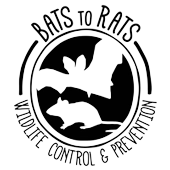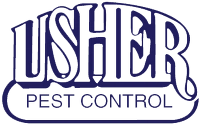How To Choose a Pest Control Company
Choosing the best pest control company for you is important. A company's qualifications and treatment methods are important to consider, as well as its years of experience and what other customers have said. Of course, you also want to consider cost.
Below, we explore the details of each of these factors.
Does the company have a valid license and permits to perform pest control?
Per the United States Environmental Protection Agency (EPA), all pesticide applicators and their supervisors are required to be certified at the state level. The EPA sets minimum standards of competency, but all pesticide applicators in Nebraska should be licensed through the proper state regulatory agencies.
Is the company a member of any professional organizations?
One optional certification that may be worth looking for is the GreenPro Service Certification. In order to get this certification, a pest control company needs to both demonstrate that its practices are more environmentally friendly and uphold certain training standards for its technicians. Companies can also earn other certifications from QualityPro or similar trade organizations to further support their work.
Pest control companies can also be members of various professional organizations. Joining an organization like the National Pest Management Association (NPMA) or a state-level organization gives companies access to education and resources, as well as a professional network to compare best practices with. Membership in one of these organizations is not mandatory, but it can help indicate that a company follows industry best practices.
Professional Experience and Specialties
A company's years in business can indicate how much experience it has handling pests in your area. You can also browse its website or look through customer reviews to decide whether it has the right kind of experience handling the species of pests you are looking to get rid of. If this information can't be found online, speaking with a company representative is a good way to learn more.
Reviews and Recommendations
Resources that can be used to verify a company's legitimacy include social media, local review sites, and the Better Business Bureau (BBB). Additionally, you can confirm the status of a company's license via the Nebraska licensing board.
Cost of Services and Guarantees
Cost is important when hiring a pest control company. Cost can be affected influenced by the size of your house, the type of pest being treated, your location, and other factors.
Many companies offer free on-site estimates before starting work, to help you decide whether it fits into your budget. You can also ask whether a company offers a satisfaction guarantees, meaning that it will continue to treat your pest problem until it is solved.
Safety and Treatment Methods
Safety is an important consideration when selecting a pest control provider. You might also prefer a provider who employs more natural, environmentally friendly methods.
Safety
All pesticides (except those that are determined to be of minimal risk) should be registered with the EPA. Your pest control technician should provide information on every pesticide they plan to use. They should be able to tell you whether these chemicals are low toxicity or non-toxic, and if not, what safety precautions they plan to take.
Treatment Methods
Many companies have started offering options for more environmentally friendly pest control techniques before employing harsh pesticides.
One common method for making pest control safer and greener is Integrated Pest Management (IPM). The steps of IPM are as follows:
- Identify problem pests and determine if immediate action is required.
- Decide on the safest course of action.
- Manage the pest problem using a combination of biological, cultural, physical, and mechanical controls.
- Employ chemical controls only when absolutely necessary, and always in combination with other methods for effective long-term pest management.
- Assess the outcome and continue with additional pest control as needed.

















